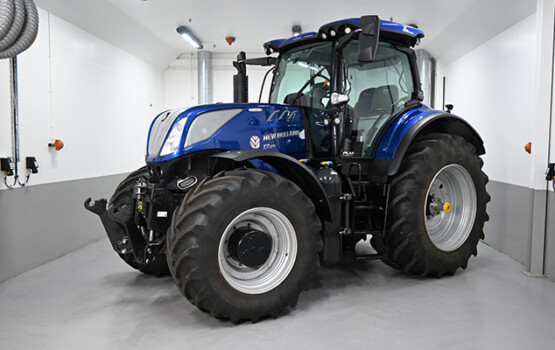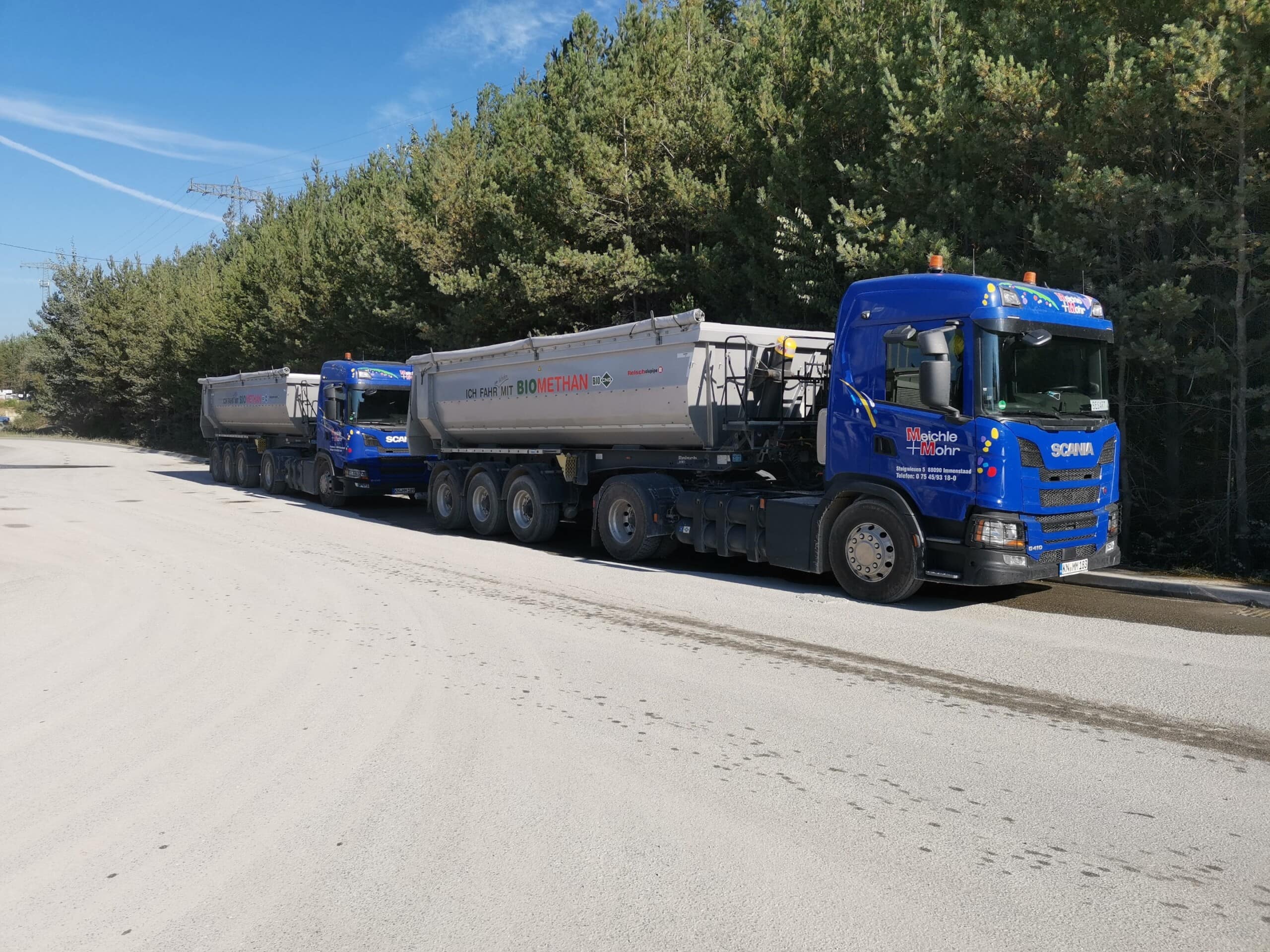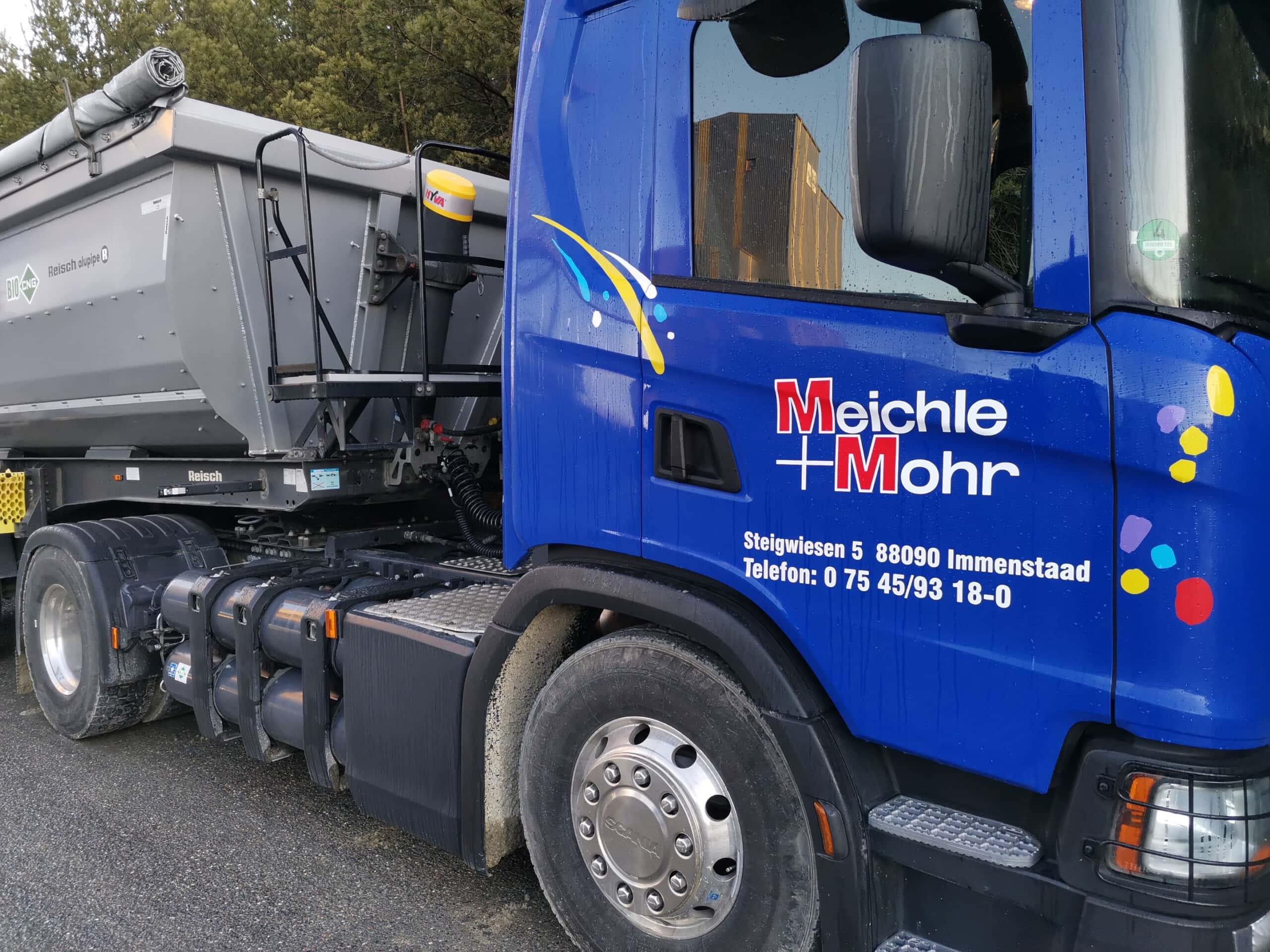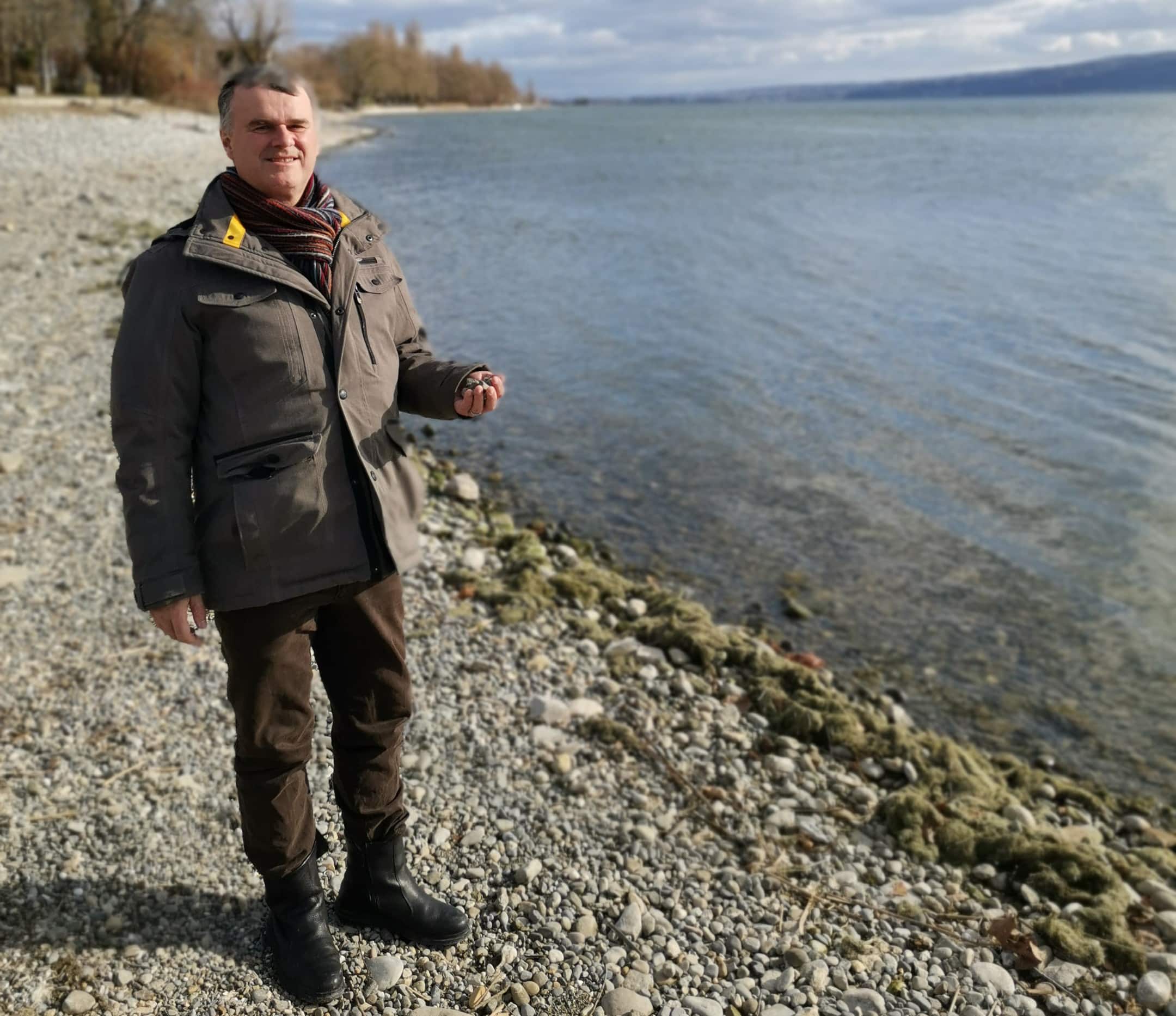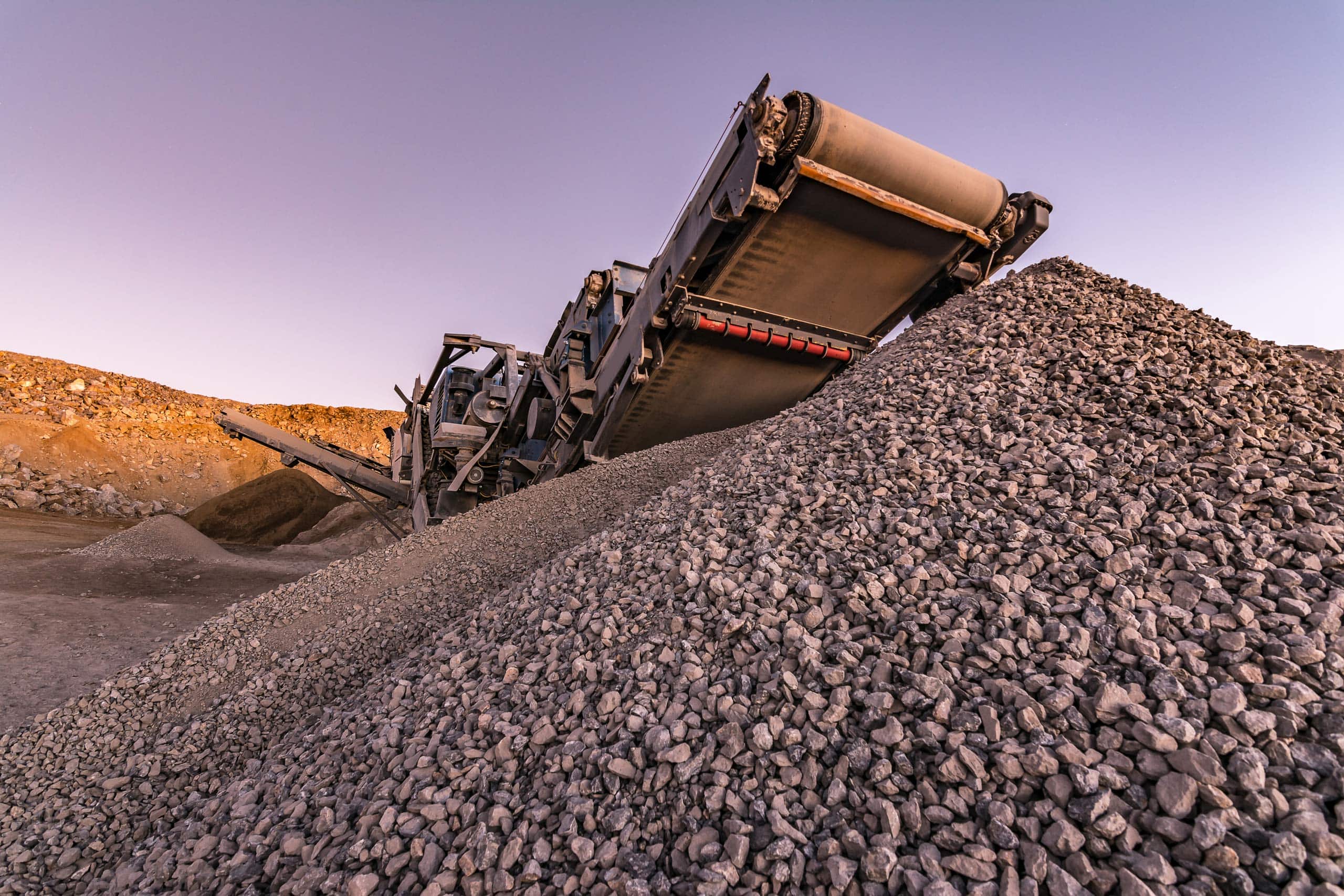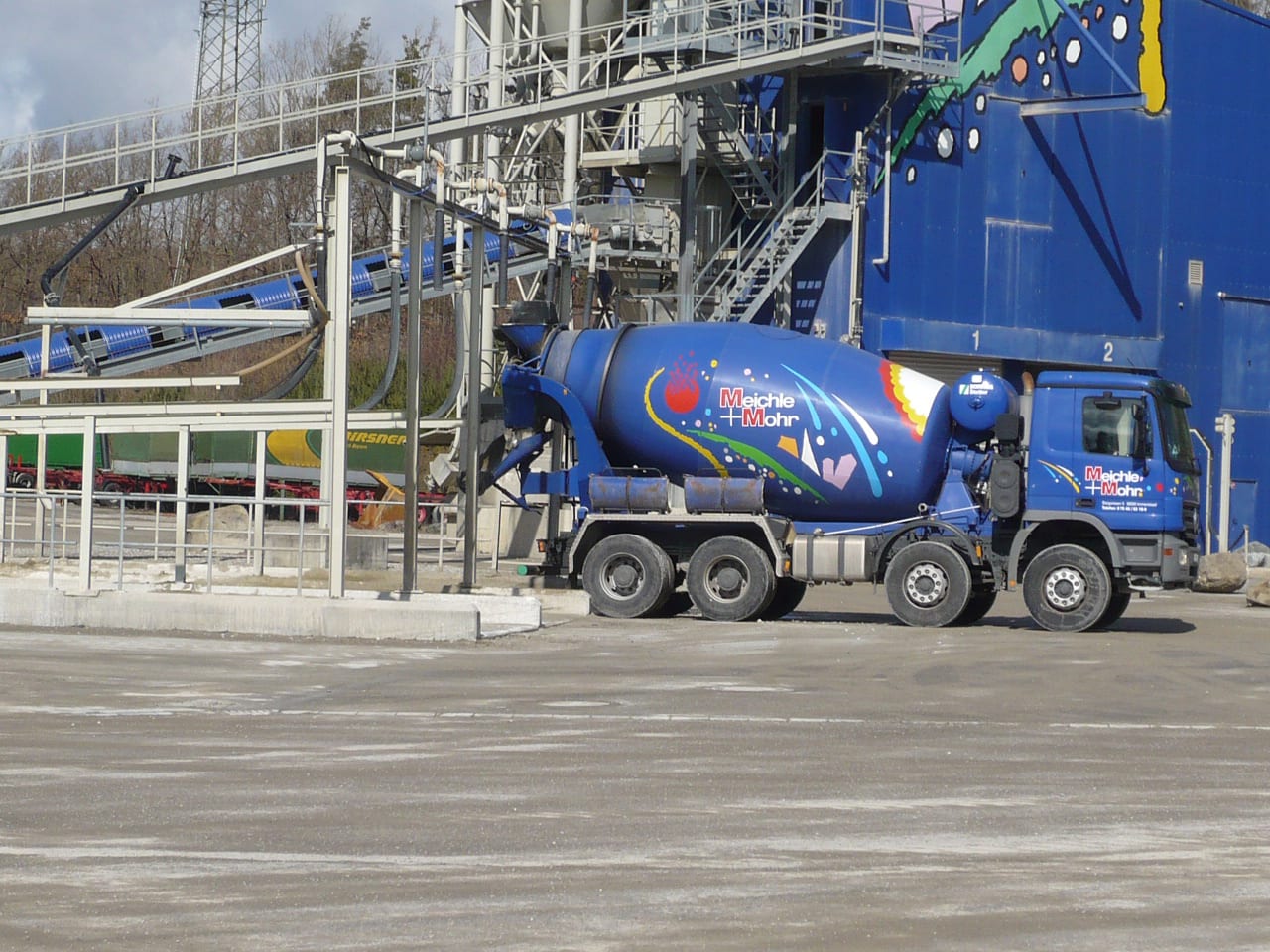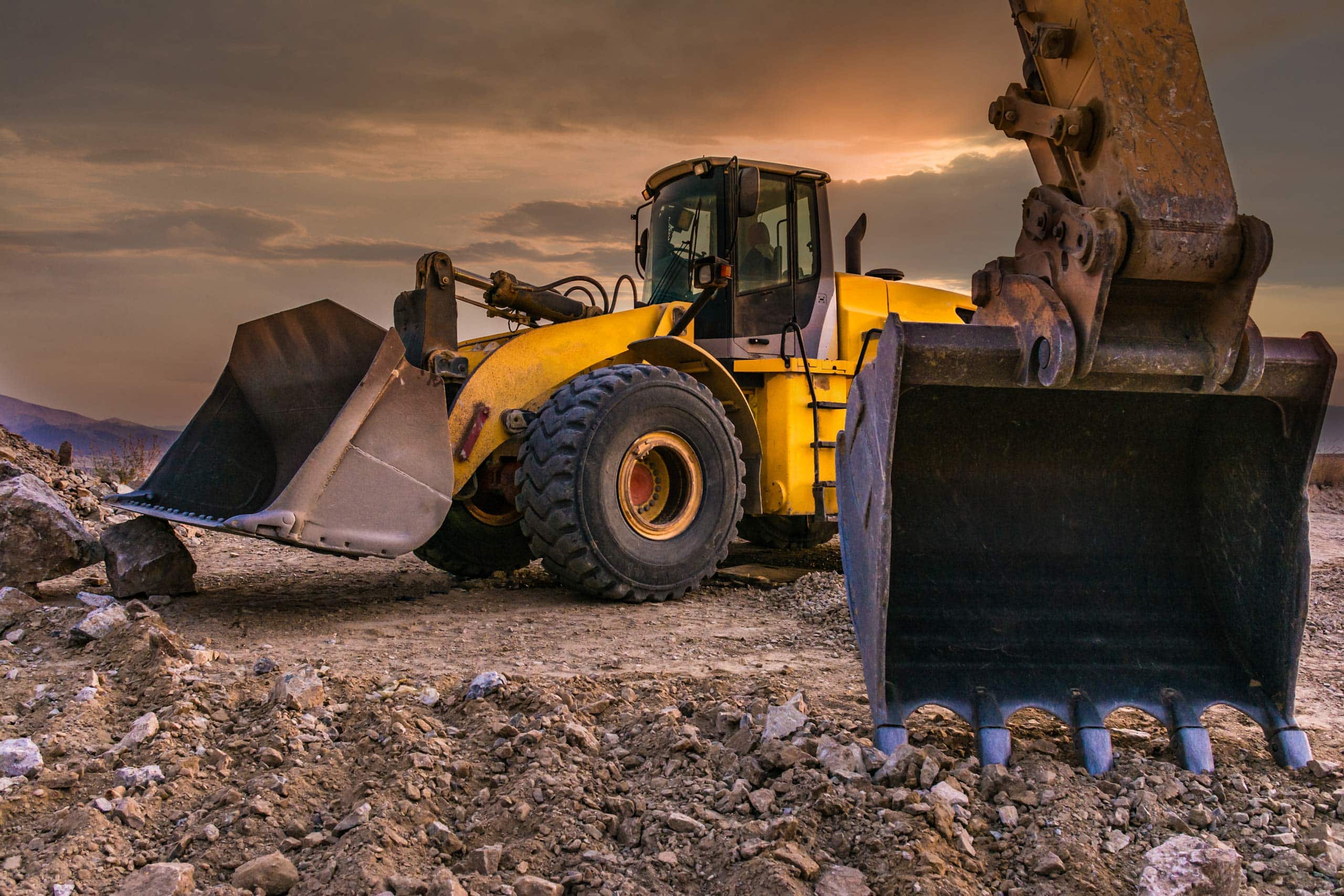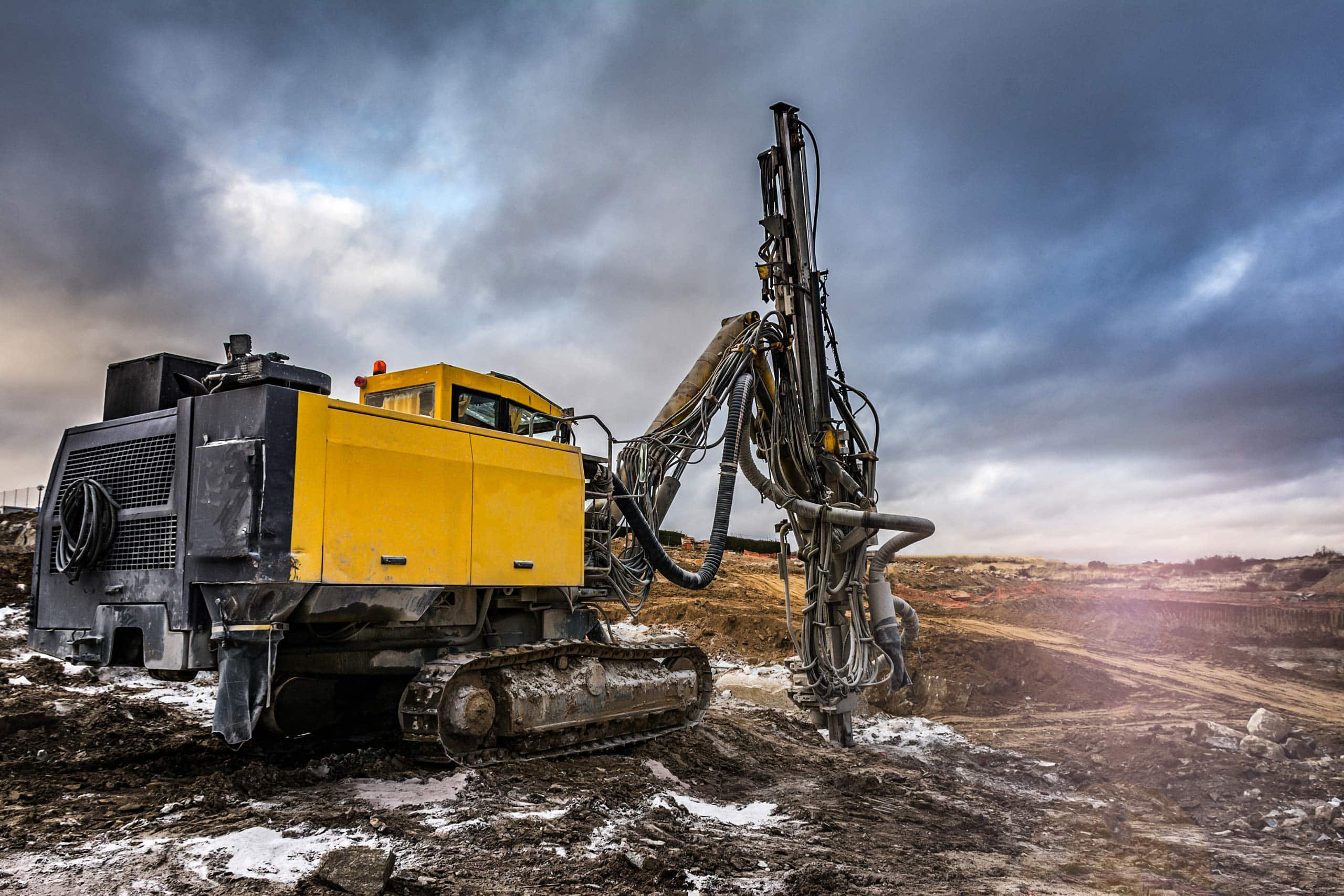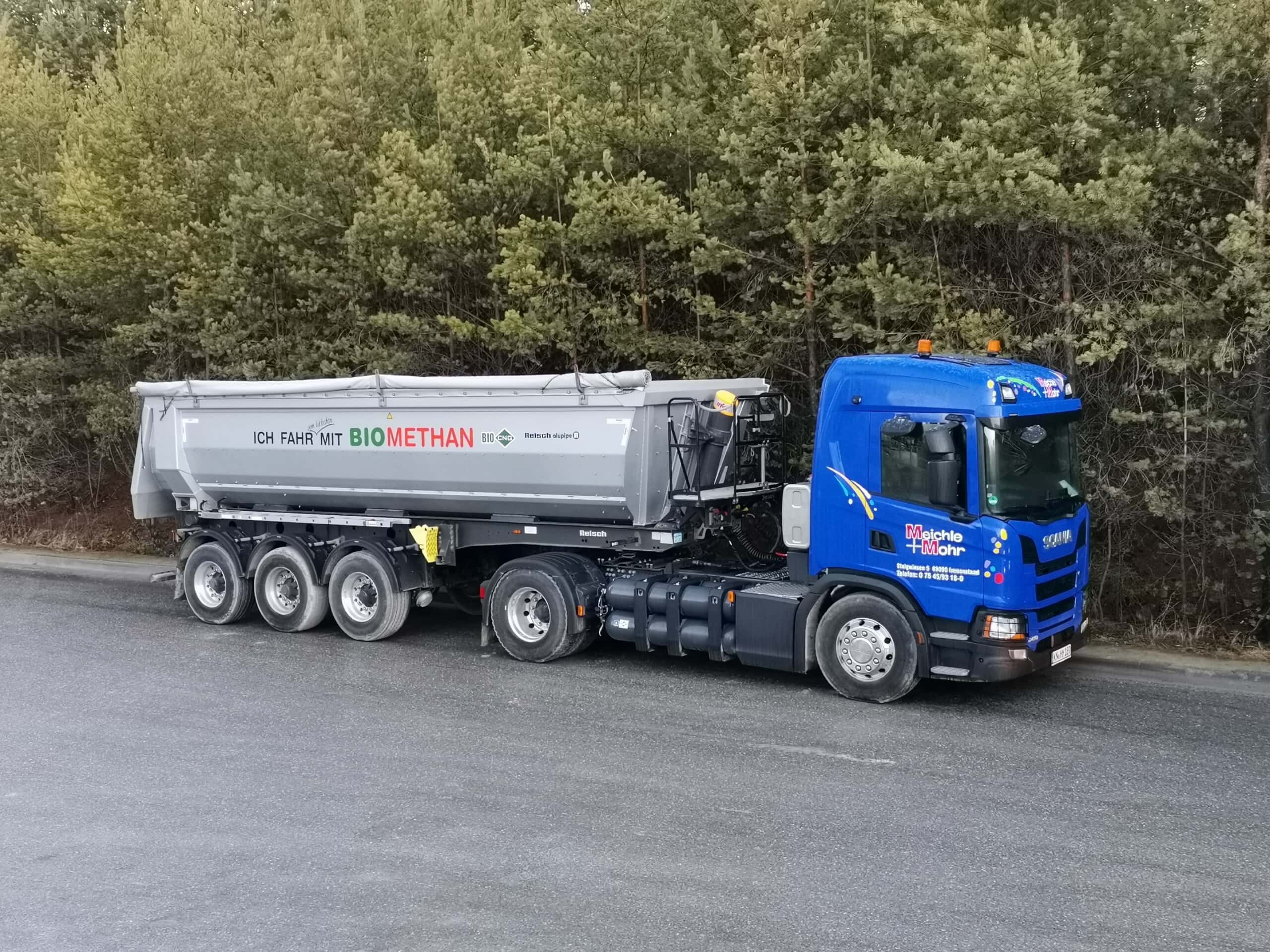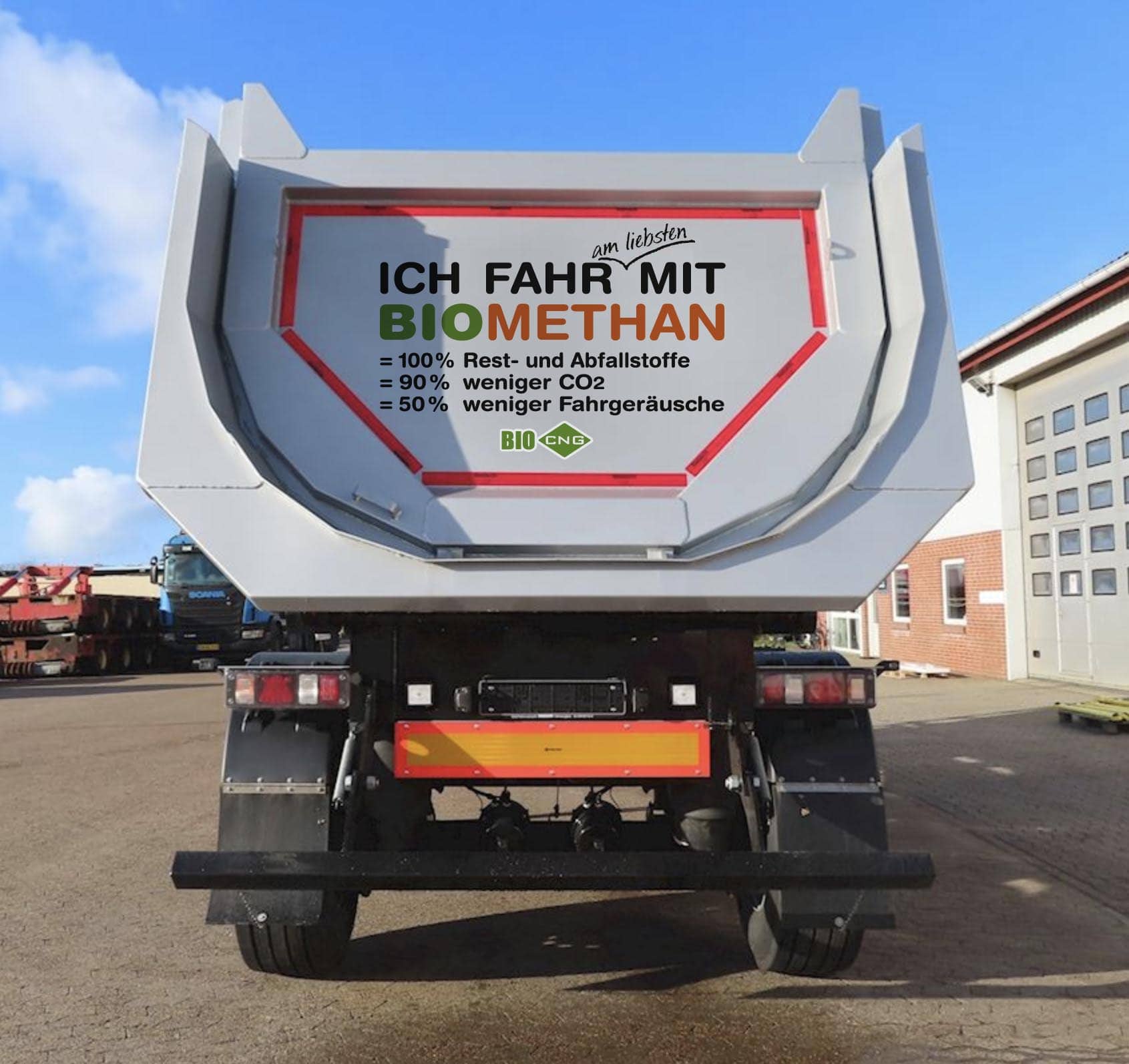Portal for more climate-friendly mobility
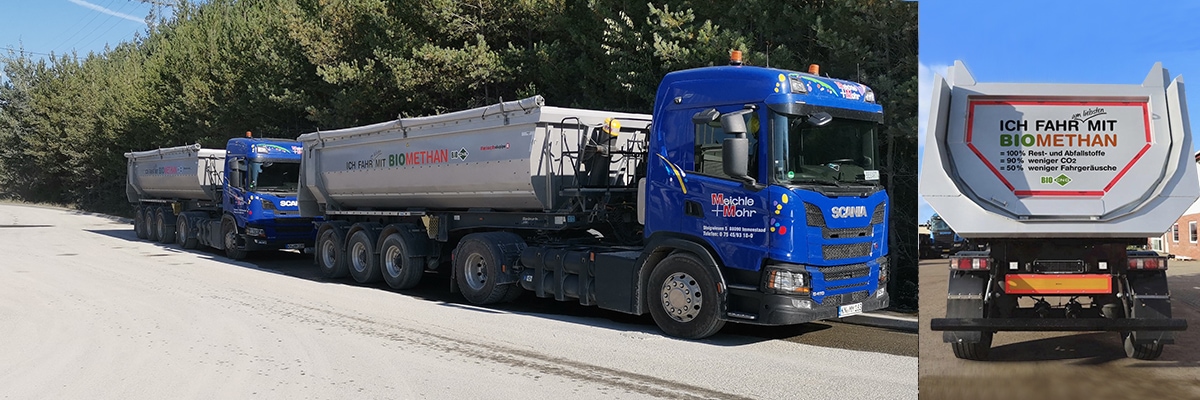
Fun with CNG vehicles
From a regional supplier of raw materials, the family-owned company Meichle + Mohr has grown into a competent service provider in the construction and logistics sector. Its boss explains: “We have fun with our CNG vehicles.” In this interview, Managing Director Stefan Meichle also explains why he opts for this alternative engine technology and why he does not allow an electric truck to clock up the approximately 130,000 kilometres travelled per year, for example.
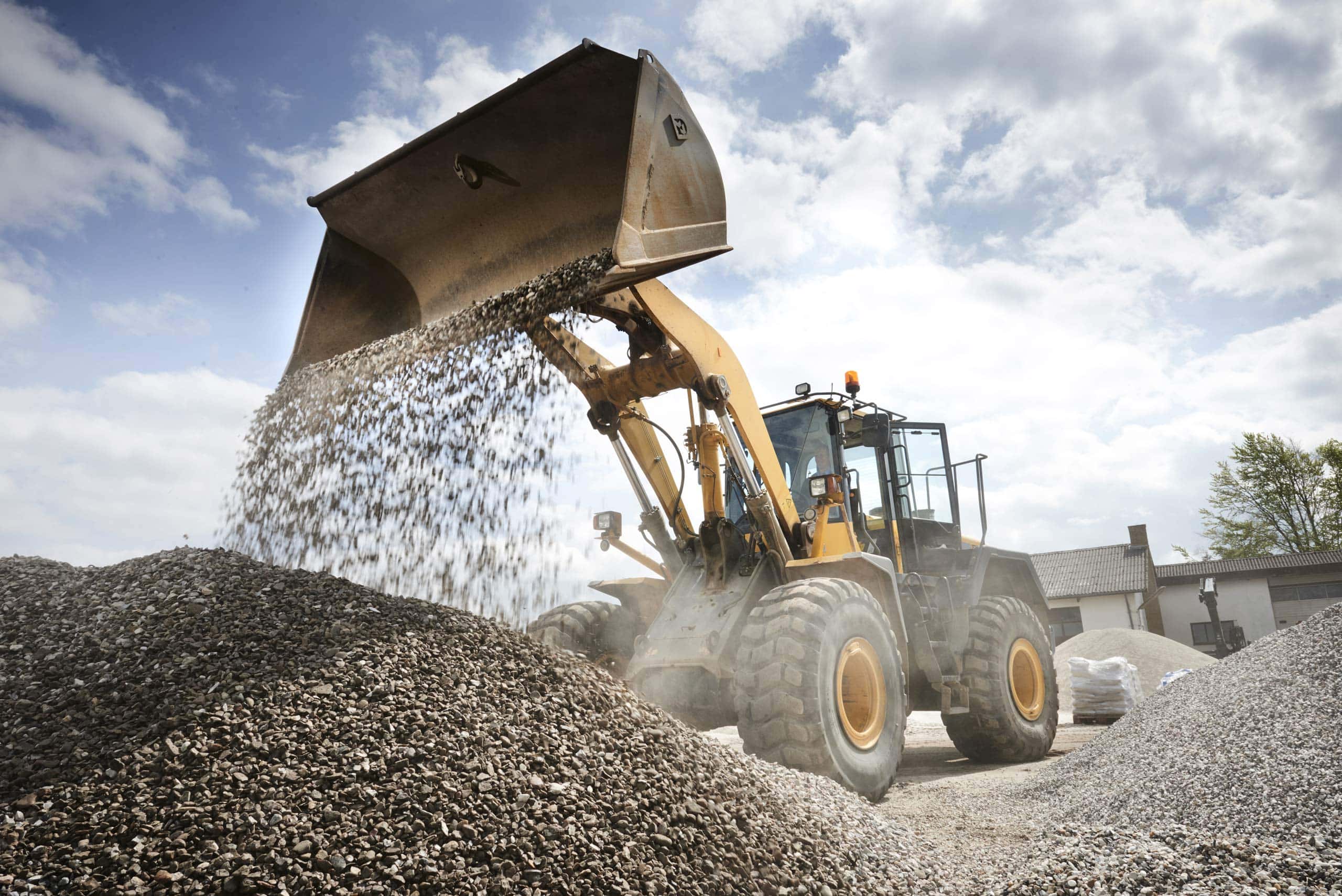 Soruce: Meichle + Mohr
Soruce: Meichle + Mohr
In addition to employees and customers, the focus of the Lake Constance-based family business is on the environment. Sounds like a euphemistic company strategy and hollow words, but not at Meichle + Mohr! From a regional supplier of raw materials, the company from Immenstaad on Lake Constance has grown into a competent service provider in the construction and logistics sector with over 300 employees. Natural resources have always been extremely important to the company, which was founded in 1924, so it also tries to be as sustainable as possible and therefore uses trucks with a CNG engine, among other things. “I like to drive with biomethane best” is written on the dump truck from Meichle + Mohr. And anyone who drives behind the truck is immediately made aware of the advantages of the CNG engine: 90% less CO2 thanks to biogas from residual and waste materials and 50% less driving noise.
«In terms of practicability and environmental impact, we consider CNG/LNG technology to be the optimum engine concept for heavy goods vehicles at the moment.»
Mr Meichle, what prompted you to use CNG vehicles given the fact that this is still rather unusual in the construction sector?
Stefan Meichle, Managing Director of Meichle + Mohr GmbH: We are an owner-operated, medium-sized company that really needs to think through its investment decisions. For this reason, we expect – and sometimes also gladly anticipate – a temporary government subsidy for a certain technology. But our main goal is to remain independent, even if this means that we bear the associated risks ourselves. In terms of practicability and environmental impact, we consider CNG/LNG technology to be the optimum engine concept for heavy goods vehicles at the moment. We would like to see justice here in terms of promoting other alternative engine systems, but we do not immediately call for even more government support as a result. This may distinguish a managing director of a medium-sized company from a CEO of a large corporation. We have fun with our CNG vehicles. It makes sense to use these vehicles where we have a high daily mileage, even though most customers are only within a radius of up to 50 kilometres from our gravel pit on Lake Constance.
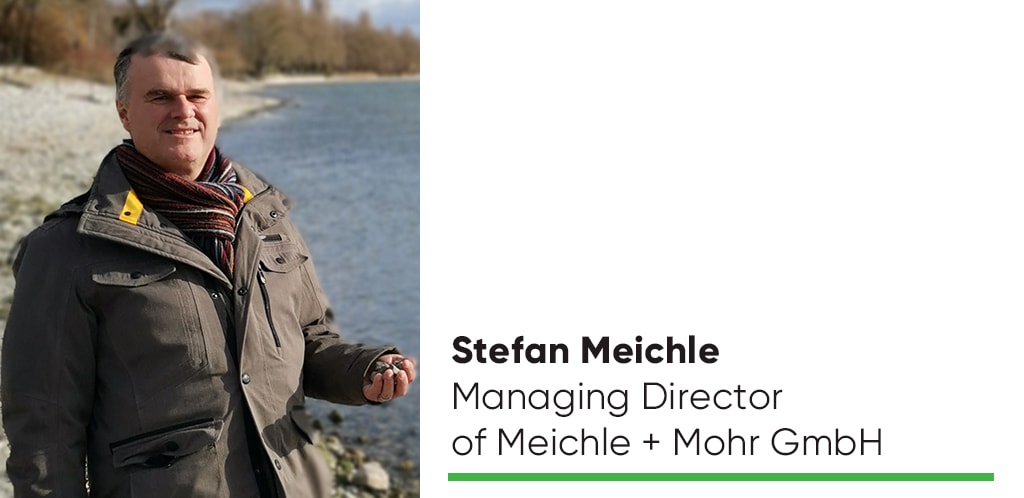
Would other alternative types of engine such as electric or hydrogen, which are currently being hyped, also have been an option?
Battery technology is not fully developed. The problems with loading, range, weight and service life make the use of this technology unsuitable for commercial truck transport. The charging process takes too long, and we also operate in two shifts. Volvo specifies the range of its electric truck at 350 kilometres. However, we drive 450 kilometres per shift. The German legislator has created an exemption for the additional weight of the batteries of four tonnes. If they drive a conventional truck with a total weight of 44 tonnes, they are considered destroyers of infrastructure and have to expect the toughest sanctions. The fact that the battery-powered truck costs three times as much as a conventional truck and that the German government subsidises 80% of the additional costs also shows the political madness of your northern neighbour.
What about hydrogen engines?
CNG technology is nothing more than hydrogen technology. Whether a combustion engine or fuel cell is chosen is insignificant in terms of efficiency and emissions. Methane (CH4) is a carbon atom that binds four hydrogen atoms to itself. If this carbon still comes from vegetable residues and waste materials, we have biogas. Almost all CNG filling stations in Germany now sell biogas.
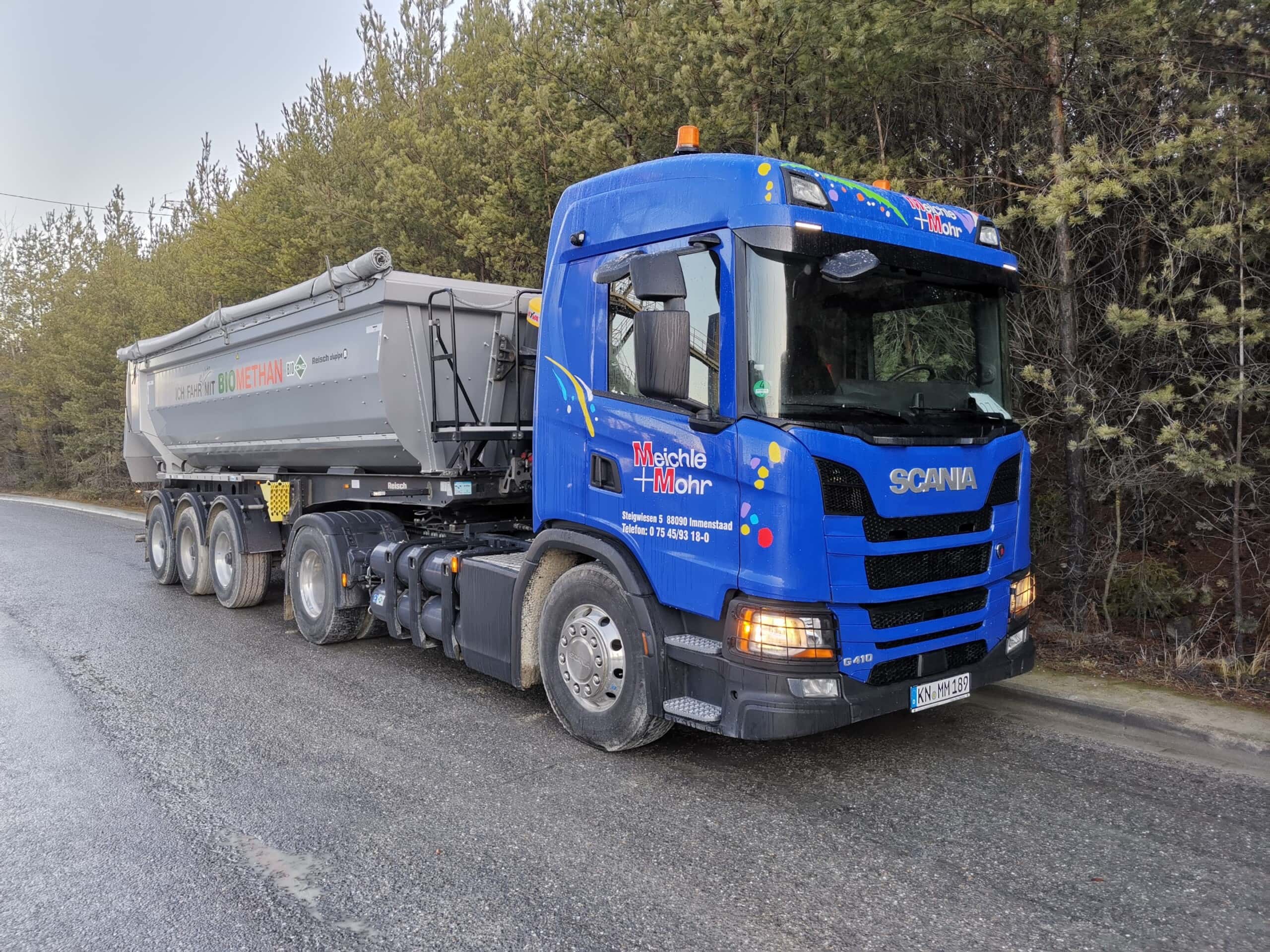 One of Meichle + Mohr‘s trucks with CNG drive and biogas in the tank, which thus covers kilometer after kilometer in an almost CO2-neutral manner. Source: Meichle + Mohr
One of Meichle + Mohr‘s trucks with CNG drive and biogas in the tank, which thus covers kilometer after kilometer in an almost CO2-neutral manner. Source: Meichle + Mohr
Where are your CNG vehicles used and how many kilometres do they cover each year?
We mainly transport bulk goods such as gravel and sand as well as recycled products. We use the CNG vehicles on routes with a high daily mileage, which amounts to 130,000 kilometres per year.
Did the employees need special training?
No, we are proud of our employees. They are so motivated themselves, as they can see that it is a good thing for the environment and for the company.
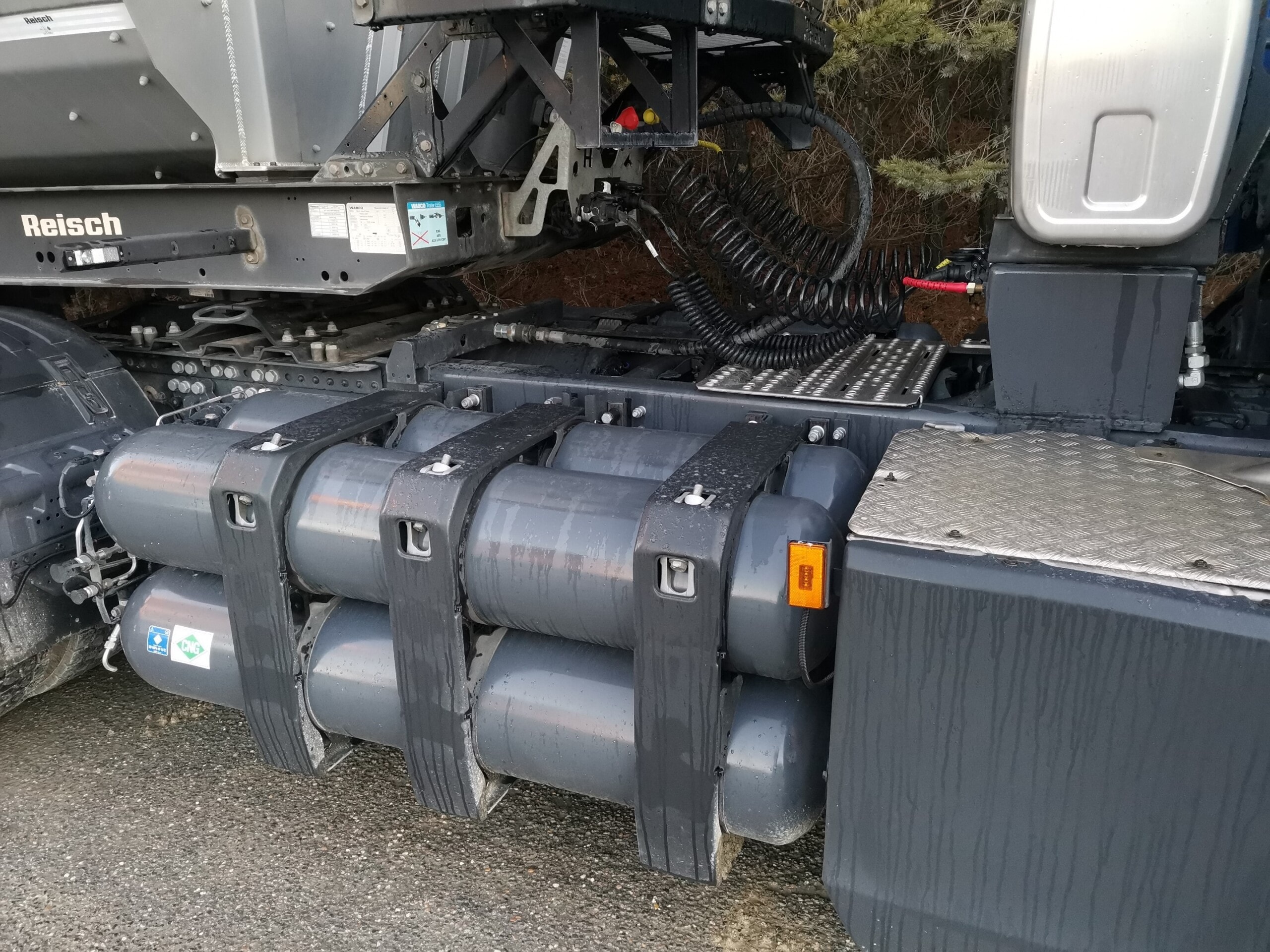 The CNG trucks cover up to 450 kilometers per shift. Thanks to the CNG tanks on board, this is easily possible without stopping for fuel. Source: Meichle + Mohr
The CNG trucks cover up to 450 kilometers per shift. Thanks to the CNG tanks on board, this is easily possible without stopping for fuel. Source: Meichle + Mohr
Instead of filling up with CNG, they even fill up on biogas for an even greater reduction in CO2 emissions – why and is it economically viable?
The biogas provider can be cheaper because it can sell CO2 certificates that a conventional supplier has to buy. There is also a tax and toll reduction for CNG and alternative engines in Germany. Of course, vehicle manufacturers are also aware of this and want to get some of it back in the form of a higher margin for their investment in a niche product. This means that the economic advantage is negligible for us. Incidentally, it is a shame that Switzerland has been excluded from the certificate trade in this area.
For dump trucks, high-performance auxiliary units are required. Do they also work with biogas, or were there any special challenges in this respect?
The hydraulic pump is driven by the engine, but these forces play a subordinate role in relation to the vehicle propulsion.
 The advantages of the CNG drive are made clear to everyone who drives behind the trucks of the family-owned company from Immenstaad on Lake Constance. Source: Meichle + Mohr
The advantages of the CNG drive are made clear to everyone who drives behind the trucks of the family-owned company from Immenstaad on Lake Constance. Source: Meichle + Mohr
What experiences have you had with the CNG vehicles and how satisfied are you with them?
Due to the higher temperatures during methane combustion in the engine, there were initially failures in the ignition modules, but the manufacturer managed to get them under control. Since then, the vehicles have been running smoothly.
With your commitment to the environment, you are setting an example. What are the reactions, for example from customers, employees or other partners/competitors?
Our employees are fully behind their company. Customers and competitors will keep a close eye on us. I certainly had the advantage that I have ten years of private experience with a CNG-powered vehicle and was familiar with how to use it. Unfortunately, in terms of public perception, CNG technology is getting lost in the media hype surrounding battery electrics. Nevertheless, we rely on it, as we assume that the one-sided energy transition involving wind and solar power promoted by environmental associations and politicians will hit a brick wall. Even price and supply problems caused by the current geopolitical situation will not last forever.
«The fact that the battery-powered truck costs three times as much as a conventional truck and that the German government subsidises 80% of the additional costs also shows the political madness of your northern neighbour.»
You run your own repair workshop. What impact does the use of CNG technology have in this area?
Until now, we have not covered all repairs ourselves. However, as our previous main supplier with the star did not want to offer any CNG vehicles, we also have to gradually switch our workshop to other makes. CNG vehicles are currently being serviced via a maintenance contract with an external workshop. (jas, 10 February 2022)
- rpt
You might also be interested in
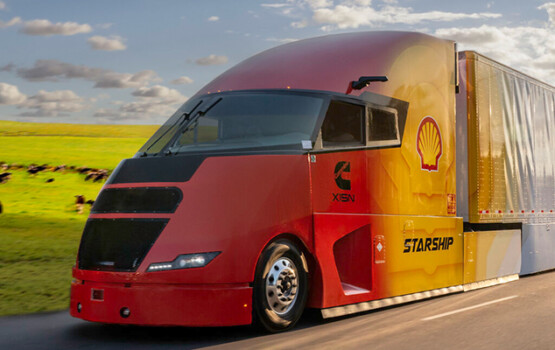
Shell Starship on record hunt
